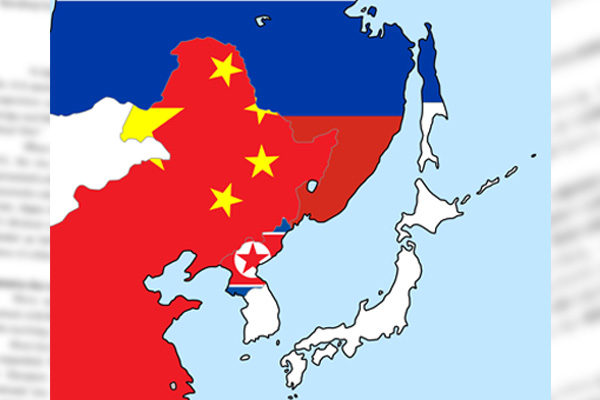Following Russian President Vladimir Putin’s statement that he would make nuclear weapons “combat-ready” shortly after Russia’s invasion of Ukraine, BBC reported that this raised the risk of Russia’s use of tactical nuclear weapons. While this might not lead to a full-scale nuclear war, it was a dramatic development, BBC said. U.S. President Joe Biden also said last June that he was concerned about Putin's possible use of tactical nuclear weapons and that the danger was real.
China may engage in nuclear intimidation
In response to the lessons learned from Ukraine, there is a lot of discussion about the possession of nuclear weapons in South Korea. A recognition is growing that South Korea’s nuclear armament will deter North Korea’s use of nuclear weapons. In a July 2022 poll, 74% of respondents were for South Korea’s development of its own nuclear weapons. Pushed by public opinion, South Korean President Yoon Suk Yeol met with U.S. President Biden in Washington last April and signed a landmark agreement that included the regular dispatch of U.S. nuclear-armed submarines to South Korea. Washington has also admitted South Korea’s involvement in U.S. plans on the use of nuclear weapons against the North. However, the United States did not admit South Korea’s nuclear armament.
China’s nuclear development is at a rapid pace. According to the U.S. Defense Department’s annual report last October, China already has more than 500 nuclear warheads and is expected to boost the number beyond 1,000 by 2030. The United States operationally deploys about 1,700 nuclear warheads. However, if the strategic nuclear balance between the United States and China becomes even in the near future, and if China threatens to use tactical nuclear weapons, there will be no guarantee of effectively deterring such actions, similar to the situation with Russia. If a military invasion of Taiwan becomes a reality, it cannot be ruled out that China might also engage in nuclear intimidation toward Japan.
Abe’s proposal ignored by LDP
In a situation where Japan is surrounded by three authoritarian nuclear-armed countries — China, Russia, and North Korea — and the realistic threat of nuclear weapons is increasing, is our country’s nuclear deterrence system truly robust? Relying solely on the United States, as we have in the past, is an overly optimistic perspective that cannot adequately ensure Japan’s security. It is evident that Japan must engage in a national debate about nuclear deterrence.
In a February 2022 television program, former Prime Minister Shinzo Abe enlightened public opinion by saying, “While thinking of the weight of history that made the Three Non-Nuclear Principles as a basic policy, we must realistically discuss how to protect the people and the independence of Japan.” However, the next month, the ruling Liberal Democratic Party’s National Defense Division ended its discussion on the nuclear issue in just one day. This raises serious doubt if Japan can surely protect its independence and security.
When discussing nuclear issues, it is essential to discuss from all perspectives, including nuclear abolition, nuclear disarmament, nuclear deterrence, the Nuclear Non-Proliferation Treaty, and the Three Non-Nuclear Principles. However, we should begin with understanding the reality of nuclear threats and sharing the perception. In doing so, it is also important to keep in mind the timeline for what needs to be done now and what needs to be prepared towards the future. We must not shy away from discussion.
Kiyofumi Iwata is a member of the Planning Committee at the Japan Institute for National Fundamentals. Formerly, he served as Chief of Staff of the Japan Ground Self-Defense Force.


